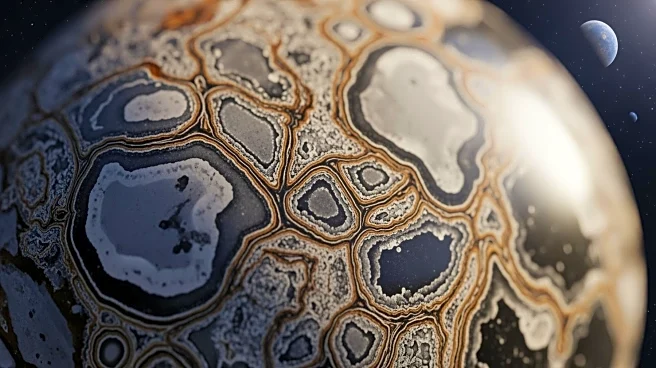What's Happening?
MIT researchers have discovered traces of 'proto Earth,' the ancient precursor to our planet, in deep rock samples. These samples contain a unique chemical signature, specifically a potassium isotopic
anomaly, that differs from most materials found on Earth today. The anomaly suggests that these rocks preserve tiny portions of the proto Earth's original material, surviving the planet's violent reshaping during a giant impact event.
Why It's Important?
The discovery of proto Earth materials provides valuable insights into the early formation and evolution of our planet. Understanding the original chemical composition of Earth can help scientists reconstruct the processes that shaped the solar system and inform studies on planetary formation and geology. This research could lead to new theories about Earth's history and the development of its geological features.
What's Next?
Further analysis of the proto Earth materials may reveal additional information about the planet's early history and the impact events that shaped its evolution. Researchers may focus on identifying other remnants of proto Earth and exploring their implications for planetary science. Collaboration with geologists and astronomers could lead to new discoveries about the solar system's formation.
Beyond the Headlines
The ethical considerations of geological research should be addressed, particularly in terms of data sharing and the potential for commercial exploitation. The impact of this discovery on scientific theories and educational practices should be monitored.








